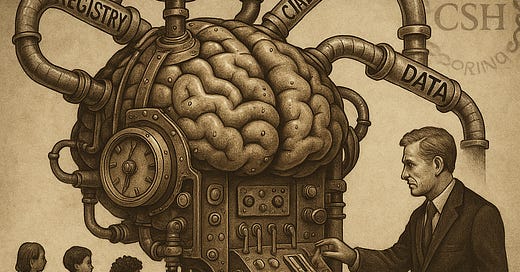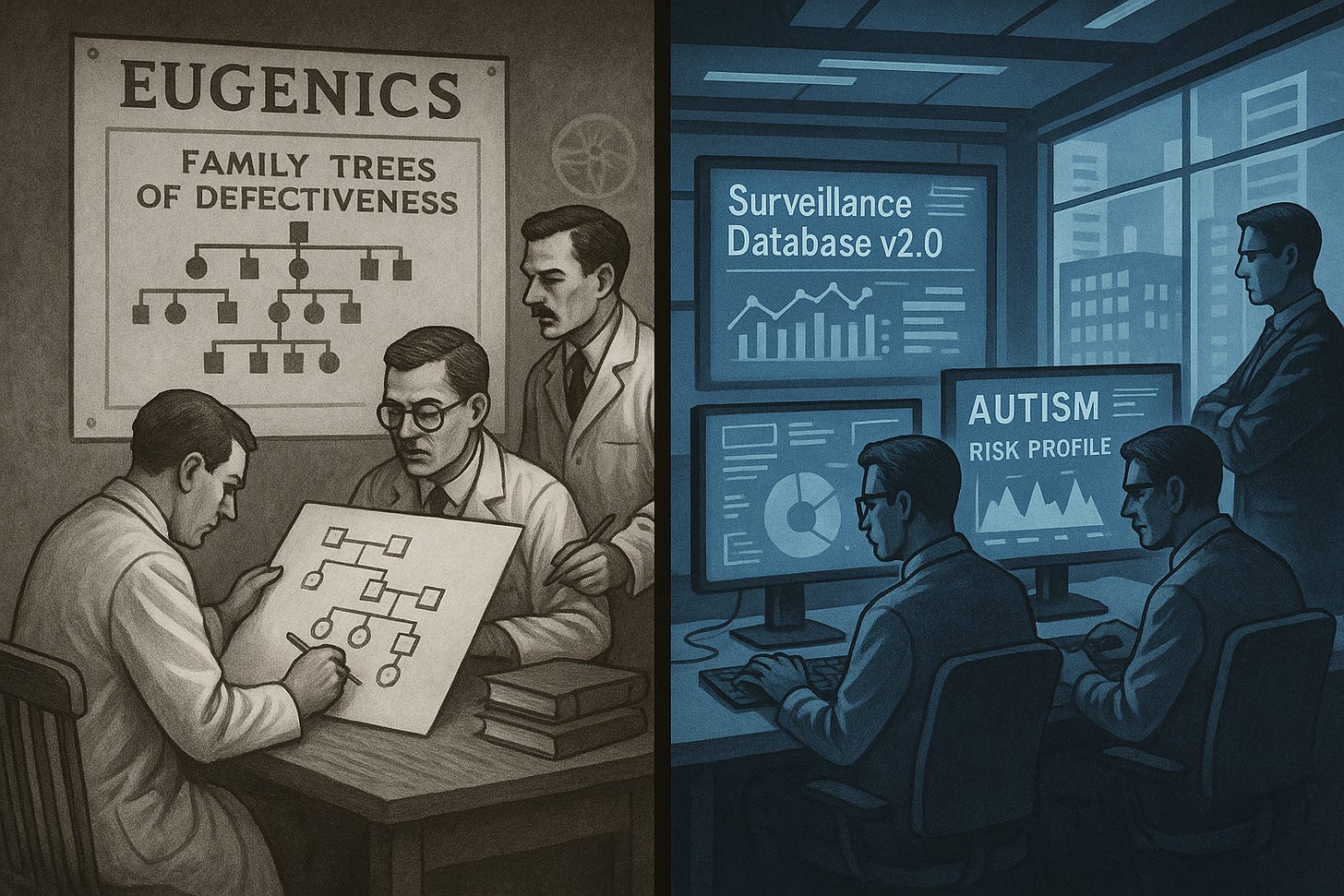For nearly a decade, I’ve taught the Foundations of Learning course at the University of Redlands, where one of the first truths I expose my students to is this: American education has always been haunted by the specter of eugenics. The rise of intelligence testing—what many still revere as the scientific measuring stick of human potential—was never just about learning. From the moment Binet’s ideas were imported and distorted in the U.S., they became tools of classification, exclusion, and control. IQ tests didn’t just identify “giftedness”—they legitimized sterilization laws, institutional warehousing, and the pseudoscientific policing of human difference. Eugenics wasn’t an anomaly in our educational history. It was a feature.
Which is precisely why Robert F. Kennedy Jr.’s recent crusade to build a vast data infrastructure around autism should set off alarms in every historically literate, ethically grounded mind in this country. Let’s stop pretending this is just about public health. Let’s stop pretending this is neutral science. What Kennedy is advancing is a revival of eugenic logic wrapped in a populist rebrand. He may not use the word—but the blueprint is unmistakable.
Kennedy calls autism an “epidemic”—a term deliberately chosen to instill panic. He ignores the consensus of decades of genetic and neurodevelopmental research and instead fixates on vaccines, chemicals, and toxins. Not because the evidence is strong, but because the politics are useful. This is not science. This is theater. And worse, it is a dangerous distraction from what the neurodiversity movement has fought to establish: that autism is a valid, valuable, and permanent part of human variation.
Let’s be blunt: Kennedy is not asking how to support autistic people. He’s asking how to reduce their numbers. His obsession with environmental “root causes,” paired with a proposed national autism registry (yes, registry—let’s not get cute with semantics), echoes the exact same logic that animated the Cold Spring Harbor Eugenics Record Office. Collect the data. Map the traits. Predict. Prevent. Purge. The playbook hasn’t changed—it’s just had its edges sanded down.
Apologists argue that Kennedy’s motives are pure. That data collection is normal. That parents deserve answers. Let’s not kid ourselves. Data is never neutral. It’s a weapon, or a shield, depending on who wields it and to what end. And when the foundational assumption is that autistic people are a societal problem to be solved, the data becomes ammunition for discrimination, not tools for liberation.
This entire project reeks of the biopolitical machinery Michel Foucault warned us about: the subtle, systemic management of populations through discourses of health, efficiency, and social value. Kennedy isn’t building understanding—he’s building infrastructure for normalization. For control. For sanitizing the gene pool without ever having to say so out loud.
Politically, his framing is even more sinister. By casting autism as a national emergency, Kennedy fans the flames of fear and resentment. He transforms autistic individuals into burdens, variables, costs. His solutions—centralized data collection, algorithmic analysis, and a willful disregard for lived experience—amount to technocratic violence. This is not care. This is containment.
And people are not fooled. Autistic self-advocates, disability rights groups, and scholars across disciplines see this for what it is: a soft reboot of an old horror. The fear isn’t that Kennedy’s plan will begin with coercion—it’s that it will end there. Because that’s how these things always start: with concern, with studies, with numbers. Then come the policies. The exclusions. The silences.
Let me be crystal clear: research into autism is not the problem. But research that presumes autism is a deviation from an ideal—research that excludes autistic voices, that feeds public panic, that serves political vanity—is not science. It is ideology. And when ideology masquerades as care, it becomes even more dangerous.
"By September, we will know what has caused the autism epidemic and we will be able to eliminate those exposures."
— Robert F. Kennedy Jr., Campaign Cabinet Meeting, April 2024
This is not just a debate about autism. This is a referendum on what kind of society we want to be. Will we repeat the cycles of our past—sorting, ranking, managing human lives for efficiency and purity—or will we finally learn to embrace human variation as intrinsic to freedom?
“What we’re proposing is a transformative real-world data initiative… We’re building a platform to provide robust and secure computational data for autism and chronic disease research.”
— Press Conference, Health Freedom for Humanity, March 2024
Robert F. Kennedy Jr.
Eugenics never left. It rebranded. And if we fail to call it out when it resurfaces—especially in the polished language of public health and data science—we become complicit in its return.







